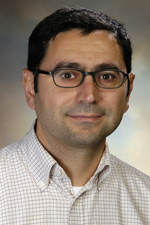Daily Business Report-May 9, 2017
Bumble Bee Canned tuna
Bumble Bee Agrees to Plead Guilty
to Price Fixing; Will Pay $25M Fine
San Diego-based Bumble Bee Foods LLC has agreed to plead guilty for its role in a conspiracy to fix the prices of shelf-stable tuna fish, such as canned and pouch tuna, sold in the United States, the Department of Justice announced Monday.
According to a one-count felony charge filed in the U.S. District Court for the Northern District of California in San Francisco, Bumble Bee and its co-conspirators agreed to fix the prices of shelf-stable tuna fish from as early as the first quarter of 2011 through at least as late as the fourth quarter of 2013. In addition to agreeing to plead guilty, Bumble Bee has agreed to pay a $25 million criminal fine, which will increase to a maximum criminal fine of $81.5 million, payable by a related entity, in the event of a sale of Bumble Bee subject to certain terms and conditions. Bumble Bee has also agreed to cooperate with the Antitrust Division’s ongoing investigation. The plea agreement is subject to court approval.
“Today’s charge is the third to be filed — and the first to be filed against a corporate defendant — in the Antitrust Division’s ongoing investigation into price fixing among some of the largest suppliers of packaged seafood,” said Acting Assistant Attorney General Andrew Finch of the Justice Department’s Antitrust Division. “The division, along with our law enforcement colleagues, will continue to hold these companies and their executives accountable for conduct that targeted a staple in American households.”
The charge is the result of an ongoing federal antitrust investigation into the packaged seafood industry, which is being conducted by the Antitrust Division’s San Francisco Office and the FBI’s San Francisco Field Office.
_____________________
Court to Hear Appeals in Water
Authority Litigation Over MWD Rates
The 1st District Court of Appeal in San Francisco will hear oral argument Wednesday in the appeals of the San Diego County Water Authority’s victories in two lawsuits against the Los Angeles-based Metropolitan Water District of Southern California. A decision from the Court of Appeal is due within 90 days of oral argument.
Superior Court Judge Curtis E.A. Karnow ruled in November 2015 that MWD’s rates for 2011-2014 were illegal. The judge directed MWD to pay the Water Authority more than $243 million in damages, costs, pre-judgment interest and attorneys’ fees – the largest plaintiff’s award in the state for 2015. If MWD were allowed to continue its unlawful rate-setting practices, which are not based on the cost of services MWD provides, overcharges to the Water Authority could exceed $7 billion over 45 years, according to the Water Authority.
MWD appealed Judge Karnow’s final judgment and refused to change its rates. If the appellate ruling is appealed to the state Supreme Court, and the Supreme Court accepts review of the appeals, a final determination in the case would likely be delayed until late 2018 or 2019.
In addition to MWD’s appeals of Judge Karnow’s final decision, the Water Authority has asked the 1st District Court of Appeal to review Judge Karnow’s ruling that the agency doesn’t have standing to challenge MWD’s “Rate Structure Integrity” contract clause, which is designed to punish MWD member agencies that contest MWD rates in courts or the state Legislature. The Water Authority believes the RSI clause is an unconstitutional constraint on the Water Authority’s right to petition the courts and exercise free speech, and an unlawful attempt to immunize MWD against illegal, predatory water rates.
_____________________
City Opens New Facility to Power
Trash Trucks with Cleaner Fuel
The city of San Diego has taken a major step toward switching its entire fleet of refuse and recycling collection trucks from diesel fuel to compressed natural gas (CNG) — a cleaner-burning fuel that significantly reduces greenhouse gas emissions and saves taxpayer dollars.
Last month, the city completed the second phase of construction on a new CNG fueling station at the Environmental Services Department’s Collection Services facility on Miramar Place. There are now 13 operational fueling posts that can each fill up two CNG vehicles simultaneously.
The city currently has 20 CNG vehicles – which reduce smog-contributing pollutants by up to 90 percent compared to diesel
– operating in its fleet that have already begun to use the new station.
Once fully built out, the station will allow the city to replace its existing fleet of 131 diesel-powered collection vehicles with CNG vehicles by 2022 – one of the goals in Mayor Kevin Faulconer’s Climate Action Plan and reduce the amount of diesel fuel consumed by more than one million gallons annually.
Based on current fuel prices, this project will save the City between $1 million and $1.5 million annually in fuel costs once the entire fleet is fully converted.
_____________________
Two Scripps Research Scientists
Elected to National Academy of Sciences


Two scientists from The Scripps Research Institute (TSRI) in San Diego —Ardem Patapoutian and Phil Baran — have been elected to the prestigious National Academy of Sciences for their “distinguished and continuing achievements in original research,” the academy announced. The two join several other TSRI scientists as members of this exclusive group of scientific scholars.
“Ardem and Phil have made extraordinary contributions to science,” said TSRI President Peter G. Schultz. “Their work, and this well-deserved recognition, place them among an elite group of scientists, and we are incredibly proud to have them as colleagues. I wish them both a hearty congratulations.”
Patapoutian, a TSRI professor and member of the Dorris Neuroscience Center at TSRI and investigator with the Howard Hughes Medical Institute, studies how cells “talk” to each other and send signals through the body. His lab works to uncover the basic mysteries of human sensory biology, such as the proteins underlying our sense of touch, and contribute to the development of future treatments for disease.
Baran, the Darlene Shiley Professor of Chemistry at TSRI, focuses on a field of chemistry called natural product synthesis. His lab has developed new methodologies for more efficient and economically viable routes to create potential new drugs.
_____________________
SDSU Moves Radio Broadcast
Rights to iHeartMedia
San Diego State University and FOX Sports College Properties announced a multi-year agreement with iHeartMedia San Diego to broadcast SDSU football and men’s basketball games beginning with the 2017 football season.
Select iHeartMedia San Diego radio stations will be the flagship radio outlets for the Aztecs’ game broadcasts through the FOX Sports College Properties Network. Fans can listen to the game broadcasts locally on 101.5 KGB and XTRA 1360 AM in San Diego, on Fox Sports 1350 in Riverside, and nationwide on iHeartRadio, a live streaming radio service.
_____________________
Researchers Receive $7.5 Million Grant
to Study Memory Capacity of the Brain

A team of researchers at the University of California San Diego and Stanford University has received a $7.5 million, five-year grant to try to answer two fundamental questions: what is the memory capacity of a brain; and how does the brain process information with maximum energy efficiency. The grant was awarded by the Air Force Office of Scientific Research through a Multidisciplinary University Research Initiative (MURI).
The team is led by Padmini Rangamani, an assistant professor in the Department of Mechanical and Aerospace Engineering at UC San Diego who is an expert in theoretical and computational biophysics. In addition to Rangamani, the team includes UC San Diego researchers Terry Sejnowski, a well-known neurobiologist and expert in computational neuroscience at the Salk Institute and UC San Diego; Ralph Greenspan, the co-director of the Cal-BRAIN initiative and an experimental neuroscientist; and Shelley Halpain, a neurobiology professor who specializes in cytoskeletal remodeling in neurons. The team also includes Daniel Tartakovsky, an expert in computational mathematics at Stanford University.


